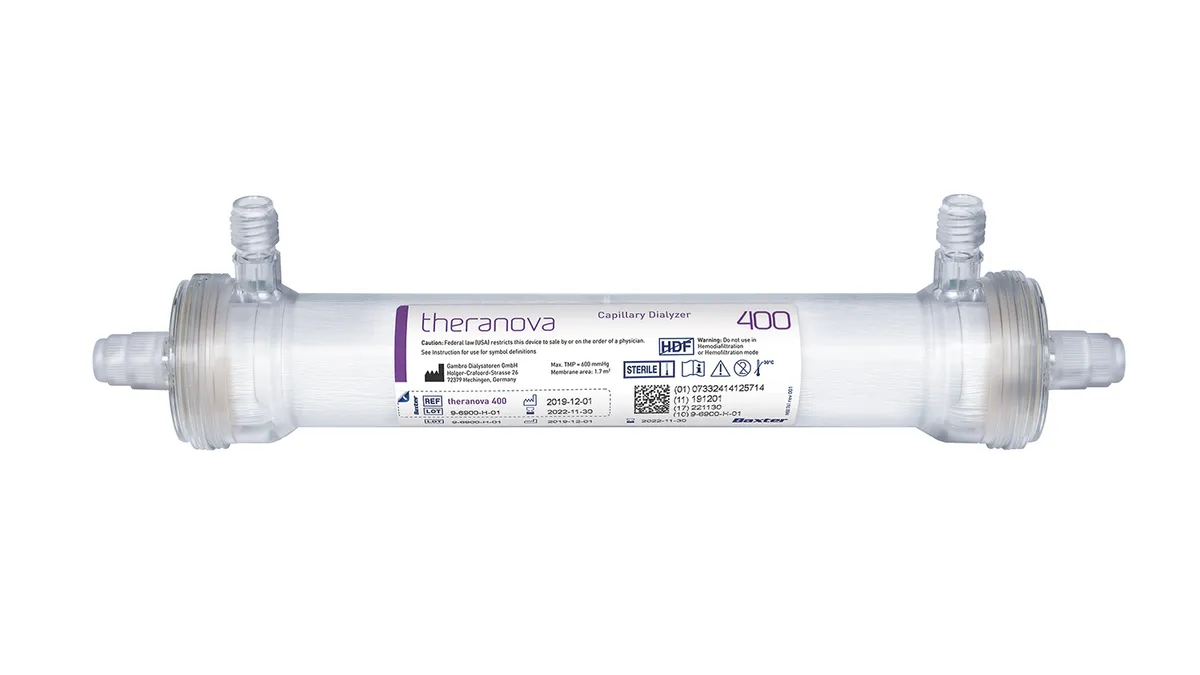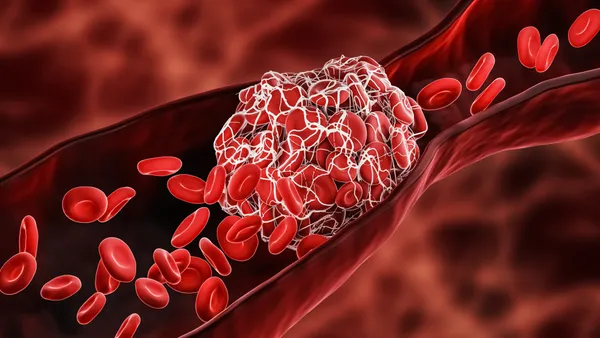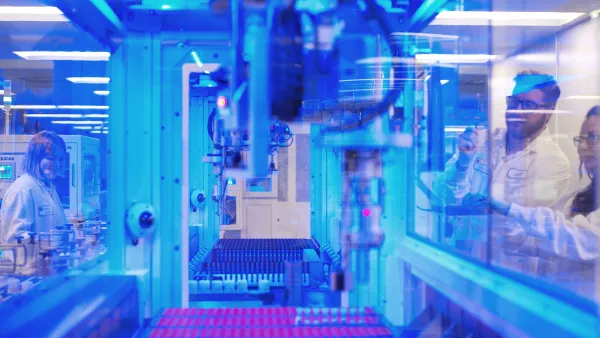Dive Brief:
-
CMS has finalized its rejection of requests from Baxter and Outset Medical to secure add-on payments for dialysis devices through its End-Stage Renal Disease Prospective Payment System rule. Their applications covered Transitional Add-on Payment Adjustment for New and Innovative Equipment and Supplies (TPNIES).
-
Baxter put its Theranova Dialyzer forward for TPNIES, a scheme to support the uptake of new, innovative devices by ESRD facilities, in the belief the product substantially improves on existing technologies. But CMS found the evidence too weak, pointing to the small size of the studies and other issues to make its case.
-
Portable dialysis machine maker Outset Medical, which raised $278 million in an IPO in September, sought to secure TPNIES for its Tablo Cartridge on the grounds it removes barriers to home dialysis. However, CMS rejected the application as the FDA authorized the cartridge piece prior to the Jan. 1, 2020 cutoff for TPNIES eligibility, thereby not meeting the newness criteria.
Dive Insight:
In the now-final rule, CMS expands the add-on payment adjustment to cover "certain capital-related assets that are home dialysis machines when used in the home for a single patient."
Under the new protocol, CMS would pay 65% of a pre-adjusted per treatment amount determined by Medicare Administrative Contractors, reduced by an average per treatment offset amount of $9.32 for two calendar years, the agency wrote. "CMS is finalizing that after the 2-year TPNIES period ends, the home dialysis machines would not become eligible outlier services and no change would be made to the ESRD PPS base rate."
But for the two applicants that looked to take advantage of the program in this round, it didn't work out.
In July, CMS identified concerns with the sufficiency of the evidence that hollow-fiber, single-use dialyzer Theranova provides a clear clinical benefit to Medicare dialysis patients. CMS called for comments to help inform a final decision on whether to accept Baxter's add-on payment application.
Baxter responded with a meta-analysis intended to address CMS’ concerns about the heterogeneity of data on Theranova generated in studies around the world. According to Baxter, the independent meta-analysis shows Theranova meets the TPNIES regulatory standard for substantial clinical improvement (SCI) for any one of five reasons. Specifically, Baxter said there is moderate to high certainty that Theranova reduces infection and restless leg syndrome, shortens recovery time and drives other benefits.
Some physicians also voiced support for the device but CMS was unmoved. The agency knocked back the application after concluding that the submitted information suffered from two major flaws.
First, CMS said the "studies and data presented were either low powered, did not provide statistical significance in their results, and/or did not include a control population." For example, a study cited as evidence of the effect of Theranova on infection involved 20 patients. Another study was based on 10 patients. The perceived shortcomings of the trials led CMS to question the reliability of the data.
Second, CMS remains concerned about the evidence Theranova filters albumin. Low levels of the critical protein are associated with increased mortality in ESRD patients. Baxter presented results to show albumin levels rebound. Yet, CMS deemed the data "nascent in identifying the subpopulations whose albumin levels may be able to respond appropriately to the filtering."
Baxter's case was further undermined by a dialysis company quoted by CMS. The commenter told CMS high-flux polysulphone dialysis membranes were widely adopted in the 1990s, only for a study in 2002 to find devices such as the Fresenius F80 and the Baxter CT190 perform no better than their low-flux counterparts. "The commenter believed that this experience did not need to be duplicated with Theranova," CMS wrote.
Outset Medical failed to meet one of the core criteria for TPNIES eligibility. After publishing the proposed rule in July, CMS learned the FDA authorized the Tablo Cartridge on Dec. 19, 2019. Only devices authorized after Jan. 1, 2020 are eligible for TPNIES. CMS would also have rejected the filing on the grounds that the studies presented as evidence cover Outset Medical's Tablo Hemodialysis System as a whole, meaning the cartridge in isolation is not a SCI.
CMS said both companies are eligible to apply for TPNIES again for calendar years 2022 and 2023. But it may not be that simple, analysts at UBS noted. "CMS cited a need for more randomized clinical studies, which we do not think [Baxter] would run due to their high cost; at any rate, it is unlikely they would be ready for '22 or '23," analysts at the investment bank wrote Tuesday.
This story has been updated with analyst insights.











